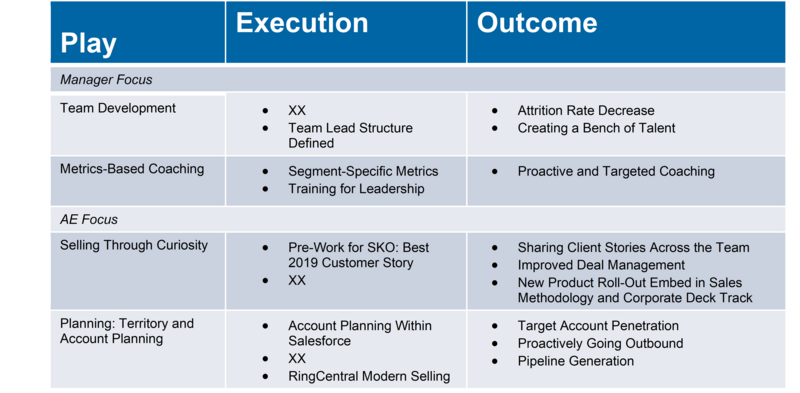ATD Blog
5 Tips for a Great Sales Kickoff
Wed Dec 18 2019

Has anyone else walked into a meeting lately and had the head of sales say, “We should have a sales kickoff meeting this year? Oh, yes . . . and the SKO (sales kickoff) should be in January.”
Of course, we all know SKOs can bring teams value. But when faced with planning one over the course of just a few short weeks, where do you start?
First off, what is an SKO? And why should we run one?
A sales kickoff unifies organizations about central sales plays for the year and allows sales managers and trainers to leverage spaced repetition to reinforce concepts. Plus, there’s the added benefit of having everyone in one place at one time. Not to mention, it’s a fun environment where your team gets to know and learn from one other.
Is pulling off a good SKO hard? Yes. It takes a lot of work to harness creativity and input across all departments that support client-facing individuals. That said, when done well, an SKO can be the factor that creates culture, drives success early in the year, and positions you, the enablement professional, as the “go-to” person.
I’ve personally been involved in launching four SKOs, and I’m working on putting together my fifth event right now. They have all nailed the teach-and-try portion of spaced repetition. The tricky part has been tailoring content to everyone in the room. How do you tailor the conversation when you have 21 different roles in the room? The key is to avoid tailoring to the role; instead, tailor content to sales plays.
Here are my five favorite tips for executing a successful SKO:
1. Quickly establish a cross-functional working team. Ours was made up of marketing, event planning, solution engineering, support functions, enablement, and sales (AE and leadership). The goal of this meeting was to create a working project plan and assign everyone a role.
2. Create public and private mission statements. The private message is for your core planning group to ensure everyone is aligned with what you’re trying to solve. The public statement provides guidance and encouragement to those attending.
3. Defined specific sales plays (example structure below). The kickoff can’t be everything to everyone. Three to four plays with defined executive and outcomes (example structure below). The goal of this is to define what success will look like and create a theme for the event. We started with a survey of the team on what they enjoyed in 2019 and wanted to be focused on in 2020. One survey for AE front line and one for front-line managers to find the middle ground. This allows you to do space repetition. Send out pre-work prior to the event on the same topics you will present on live then do post work after the event allowing the team to implement those new concepts. Teach, tailor, and try!

4. Create an ROI calculator. Your CFO will ask for this as SKOs get expensive quickly. A big thank you to our friends at Saleshood (@Elay Cohen) for sharing this great structure.

5. Plan for ongoing reinforcement (spaced repetition is key). It can be something simple like a sales calendar with closing days and fun team photos or something as advanced as having an app where you push notifications through the year to your team.
What are some of the biggest lessons learned that I can share? First, you will have to say no to some things and some people. Remember: The SKO can’t be everything to everyone, so defining the mission and plays you want to run upfront will avoid some problems in the long run. Second, make sure the SKO matches your culture. For example, we are dressing up our senior executives to align with the theme (ours is racecar driving).
Happy SKO season!
